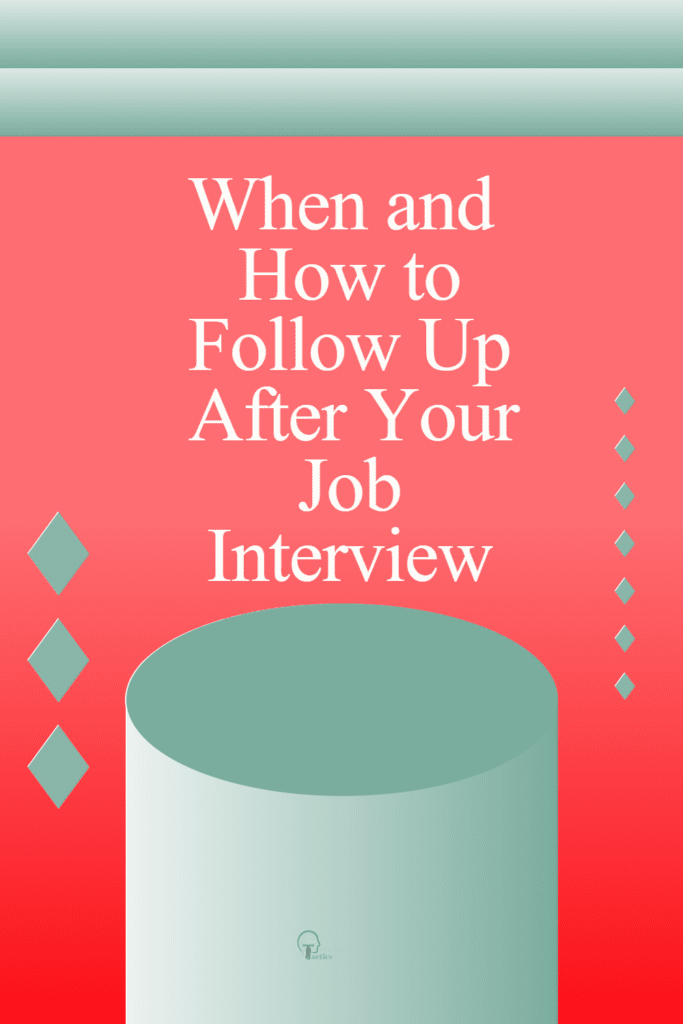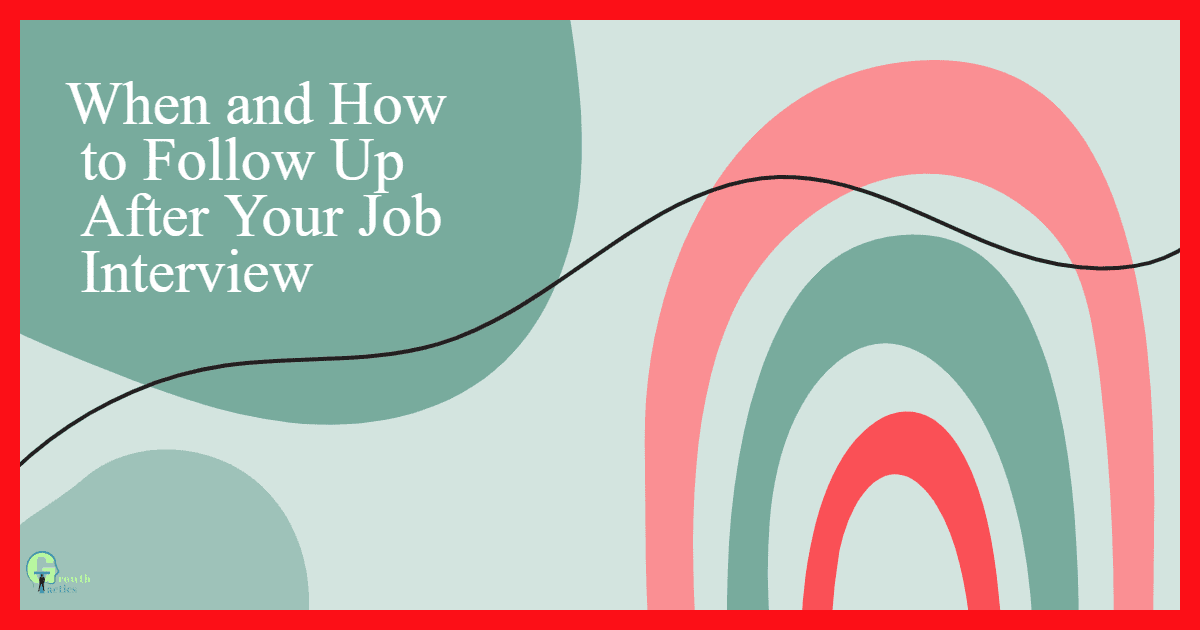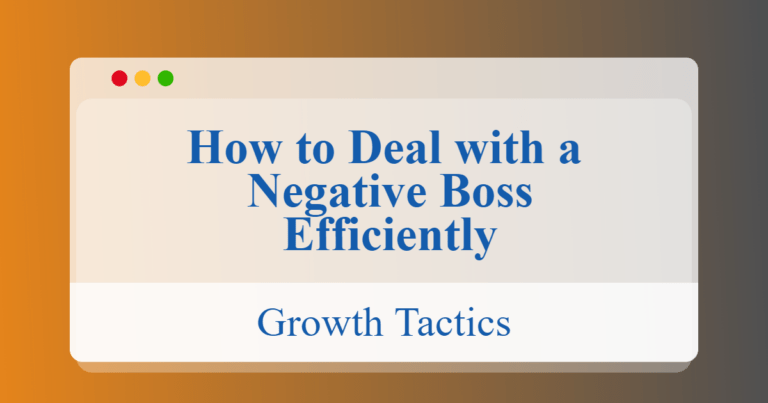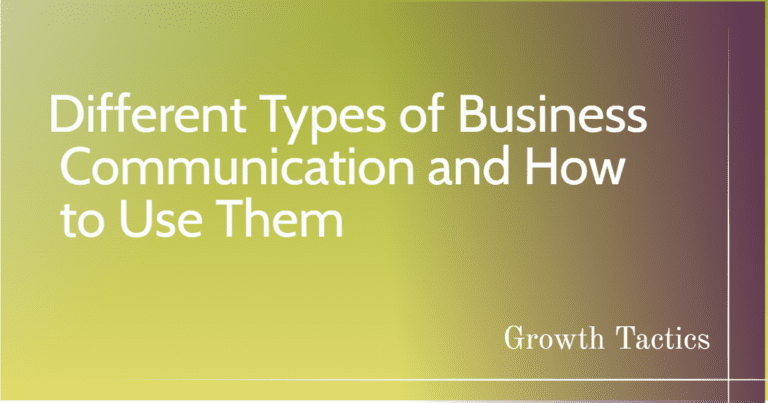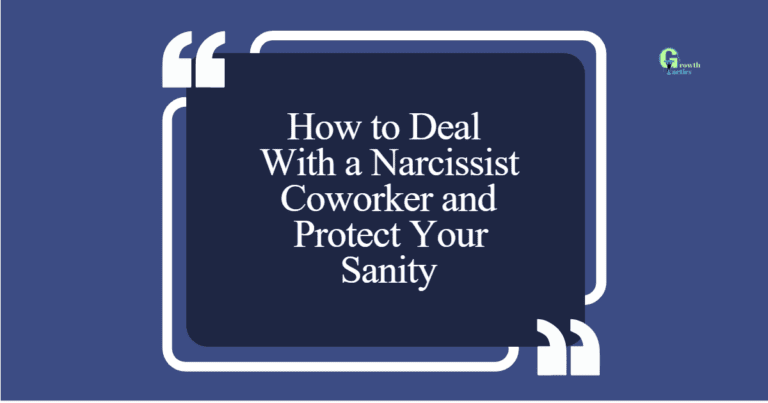Navigating the complexities of a job interview can be a challenge, but knowing the appropriate steps afterward can significantly improve your chances of landing that dream job. In the uncertain period while you wait for a response from the interviewer, understanding when and how to follow up after an interview is crucial appropriately.
In this article, we’ll outline practical guidelines on the timing and etiquette of sending a thank you or follow-up email to the hiring manager or recruiter. Identifying the ideal moment and method to express your interest in the role can profoundly impact the hiring process and set you up for success in your job search journey.
Jump To Section
How Long Should You Wait to Hear Back After a Job Interview?
Understanding the timeline after a job interview can help manage your expectations and guide subsequent actions. Let’s delve deeper into how long you should typically expect to wait to hear back, the factors affecting this waiting period when to follow up, and whether reaching out before the expected response time is advisable.
Typical Waiting Time After a Job Interview
On average, it takes one to two weeks to hear back after a job interview. However, it’s not unusual for this waiting period to extend to several weeks, particularly for highly competitive positions or roles with a multi-step interview process. An organization’s size and the industry in which it operates can also influence the timeline.
Factors That May Affect the Waiting Period
The waiting time can be affected by various factors, including the number of candidates, the complexity of the job role, the hiring manager’s availability, and the company’s decision-making process. Holidays and unforeseen circumstances can also prolong the waiting period.
When to Consider Following Up
If two weeks have passed since your interview and you haven’t heard back, it’s generally acceptable to send a follow-up email. It shows your continued interest in the position and your proactive approach. However, ensure your tone remains professional and patient.
How to Manage Your Expectations During the Waiting Period
Waiting to hear back after a job interview can be stressful. However, managing your expectations during this period is crucial. Remember, every organization has its hiring process timeline. Use this time for self-reflection, identifying areas of improvement, and continuing your job search if needed.
Should You Reach Out to the Interviewer Before the Expected Response Time?
Generally, it’s advisable to wait for the expected response time as given by the hiring manager or recruiter. Reaching out too soon may be perceived as impatience or desperation. However, it’s entirely appropriate to send a thank-you email within 24 hours of your interview. This not only reaffirms your interest in the role but also demonstrates your professionalism and courtesy.
What is the Best Way to Follow Up After an Interview?
How you follow up after an interview can be just as important as the interview itself. Let’s explore the best practices for crafting a compelling follow-up message, expressing gratitude, following up via non-email methods, and the dos and don’ts that you should bear in mind.
Crafting a Compelling Follow-Up Email
Creating a compelling follow-up email begins with a subject line that stands out. Use the subject line to remind the recipient of your interview. In the body of the email, reiterate your interest in the position, briefly mention your qualifications, and express your gratitude for the opportunity.
Sample Templates for a Follow-Up Email
Here’s a simple template you can use:
Subject: Follow-Up on [Job Title] Interview
Dear [Interviewer’s Name],
I truly appreciate the time you took to discuss the [Job Title] position with me on [Date of Interview]. It was a pleasure learning more about [something specific you discussed about the company or role].
I am keenly interested in the opportunity to contribute to [Company Name] and utilize my skills and experiences in [mention a few of your relevant skills/experiences].
Thank you again for considering me for this position. I look forward to the possibility of continuing our conversation.
Best regards,
[Your Name]
Your email should be succinct, polite, and professional.
The Importance of Expressing Gratitude in Your Follow-Up
It’s essential to include a sentence of gratitude in your follow-up email. This reaffirms your interest in the position and underscores your professionalism and appreciation for the interviewer’s time.
Following Up Via Phone Call or In-Person
If the hiring manager or recruiter mentioned that you could reach out via phone or you have an existing rapport, a follow-up call can also be effective. Or an occasional in-person follow-up can work, provided you and the interviewer have developed a good professional relationship.
But bear in mind, unwanted calls or visits can be intrusive and might work against you. So always try to gauge the company culture and the rapport you share with the hiring personnel before deciding on this approach.
Dos and Don’ts of Following Up After an Interview
Dos:
- Do be patient and respectful in your follow-up. Avoid appearing desperate or demanding.
- Do be professional in your communication.
Dont’s:
- Don’t constantly follow up. If you haven’t heard back after your first follow-up, wait another week or two before reaching out again.
- Don’t be discouraged if you don’t hear back immediately. The hiring process can often take longer than expected.
Keep in mind, effective follow-up plays a vital role in portraying your professionalism and timely communication skills that can positively impact your chances of landing the job.
How Long Should You Wait to Follow Up After an Interview?
The Appropriate Timing for Sending a Follow-Up Email
Typically, it’s best to give interviewers at least five business days to contact you. If you interviewed on a Thursday, for example, you would wait until the following Thursday to reach out. However, sending a thank-you email within 24 hours of the interview is recommended.
Factors to Consider When Determining the Timeline
The waiting time will depend on different factors specific to each employer. Keep in mind the company’s size, the industry in which it operates, and any specific information you received during the interview about the hiring process timeline.
Waiting for Feedback and the Next Steps
During the waiting period, focus on self-improvement, consider applying to other job openings, and stay patient. If the interviewer provided a period within which you could expect a response, respect that timeline before following up.
Following Up After a Specified Deadline or Promised Response Date
If the interviewer provided a specific deadline or promised response date, it is best to wait until that date before reaching out to them. If they don’t specify a timeframe, send a thank-you email within 12 hours of your interview, and follow up with another email in one week.
Adjusting Your Follow-Up Time Based on the Company’s Hiring Process
Each company has a different hiring process, so the follow-up timeline may vary. Be attentive to any cues or information provided during the interview, stay patient, and do not hesitate to adjust your follow-up timeline accordingly.
Following Up After No Response to Your Initial Follow Up
It can be disheartening when you don’t receive a response to your initial follow-up after a job interview. However, it’s important to remain professional and persistent without appearing desperate. Here’s how to proceed if you find yourself in this situation:
Wait an Additional Week
After sending your initial follow-up email, wait at least another week before reaching out again. This gives the hiring manager or recruiter ample time to respond, considering they may be busy with other responsibilities.
Send a Polite Second Follow-Up
If you still haven’t heard back, it’s appropriate to send a second follow-up email. Keep it brief, polite, and to the point:
Subject: Following Up on [Job Title] Position
Dear [Interviewer’s Name],
I hope this email finds you well. I wanted to touch base regarding the [Job Title] position we discussed on [Date of Interview]. I’m still very interested in the opportunity and was wondering if you have any updates on the hiring process.
I understand you’re likely busy, but I would greatly appreciate any information you can provide about the status of my application.
Thank you for your time and consideration.
Best regards,
[Your Name]
Consider Alternative Contact Methods
If email hasn’t been successful, you might try reaching out through a different channel:
- LinkedIn: Send a polite message through LinkedIn, if you’re connected with the interviewer or recruiter.
- Phone: If you have the interviewer’s phone number and they seemed open to calls during your interview, you could try a brief, courteous phone call.
Remember to use these alternatives judiciously to avoid appearing overly persistent.
Know When to Move On
If you’ve sent two follow-up emails and still haven’t received a response, it may be time to focus your energy elsewhere. While it’s disappointing, sometimes no response is a response in itself. Continue your job search and apply to other positions.
Maintain a Professional Attitude
Even if you don’t hear back, maintain a positive and professional attitude. The hiring process can be lengthy, and there might be internal factors causing the delay that are out of your control. Your professionalism might be remembered for future opportunities.
Learn from the Experience
Use this experience as a learning opportunity. Reflect on your interview performance and your follow-up strategy. Consider asking for feedback from trusted colleagues or mentors to improve your approach for future interviews.
Remember, persistence can pay off, but it’s crucial to balance it with respect for the employer’s time and process. By following these guidelines, you demonstrate your continued interest in the position while maintaining your professionalism throughout the hiring process.
How to Handle the Waiting Period After a Job Interview
Managing the stressful waiting period after a job interview can be crucial for your well-being and future job-seeking prospects. Following the tips below can help you stay patient, professional, and focused during this time.
Maintaining Professionalism and Patience
Respect the hiring process timeline and anticipate that it may take longer than expected. Being patient and professional will leave a positive impression on the hiring manager and establish your willingness to respect their time.
Avoiding Excessive Anxiety or Frustration
Feeling anxious or frustrated during the waiting period is natural, but it’s important not to let these emotions negatively affect your daily life. Practicing relaxation techniques, such as meditation, deep breathing, or exercise, can help alleviate anxiety and stress.
Engaging in Productive Activities to Distract Yourself
While waiting, stay engaged in other productive activities to keep your mind occupied. You can:
- Attend networking events or industry conferences
- Enhance your skills by learning something new or enrolling in a course relevant to your career
- Engage in volunteer work or get involved in professional communities related to your field
- Continue searching and applying for other job opportunities
Determining Your Next Steps While Waiting for a Response
Evaluate your goals and potential next steps during the waiting period:
- Reflect on your interview performance and identify areas of improvement
- Research additional career opportunities within your target industry
- Set up informational interviews with professionals in your field to increase your knowledge and network
- Revisit your resume and cover letter to ensure it aligns with the jobs you are applying for
How to Follow Up Without Appearing Desperate or Pushy
When following up, it’s essential to maintain a professional and respectful tone. Some tips to avoid appearing desperate or pushy include:
- Adhering to the hiring timeline provided by the interviewer, if available
- Sending a polite thank-you email within 24 hours after the interview
- Limiting the frequency of your follow-ups to once every 1-2 weeks, depending on the situation
- Demonstrating your genuine interest in the role and expressing gratitude for the interviewer’s time
By strategically managing the waiting period after a job interview, you can reduce stress, remain focused on your career goals, and maintain a professional image.
Conclusion
Navigating the uncertain waiting period following a job interview can be challenging, yet it presents a valuable opportunity for personal and professional development. By harnessing patience and maintaining professionalism, you portray a positive image to potential employers. Simultaneously, by engaging in productive activities, you strengthen your skills and industry insights.
Remember, each step in the hiring process, from application to follow-up, is a chance to illustrate your unique value and dedication. Even if you have to wait longer than anticipated, use this time to prepare for the next career opportunity that comes your way.
Always bear in mind that persistence, perseverance, and positivity during the wait can turn any challenge into an opportunity for growth. So, keep striving and never lose sight of your goals. You’re one step closer to your dream job!
